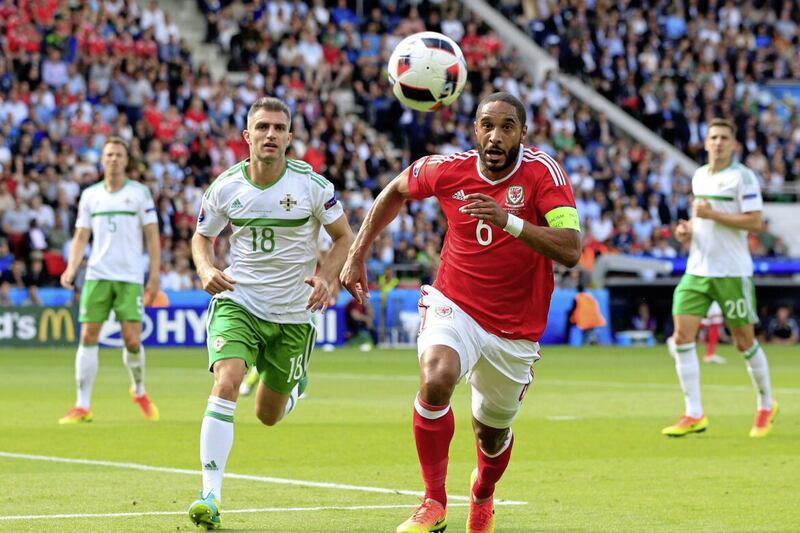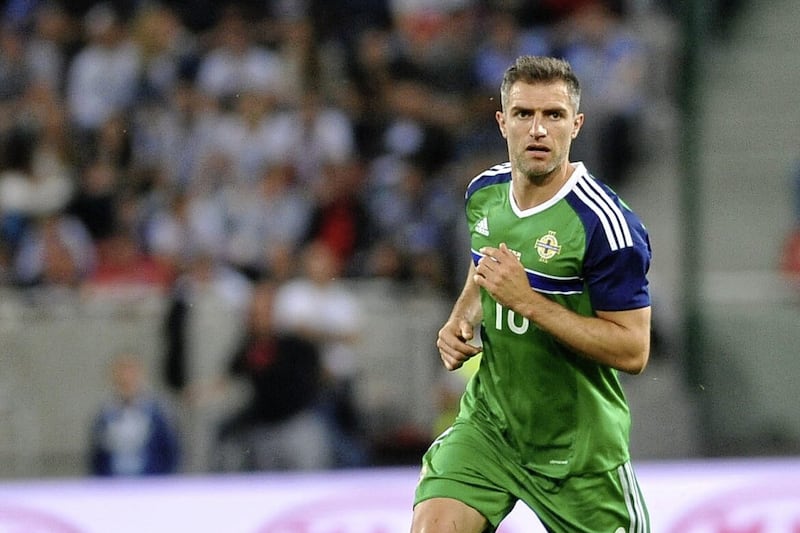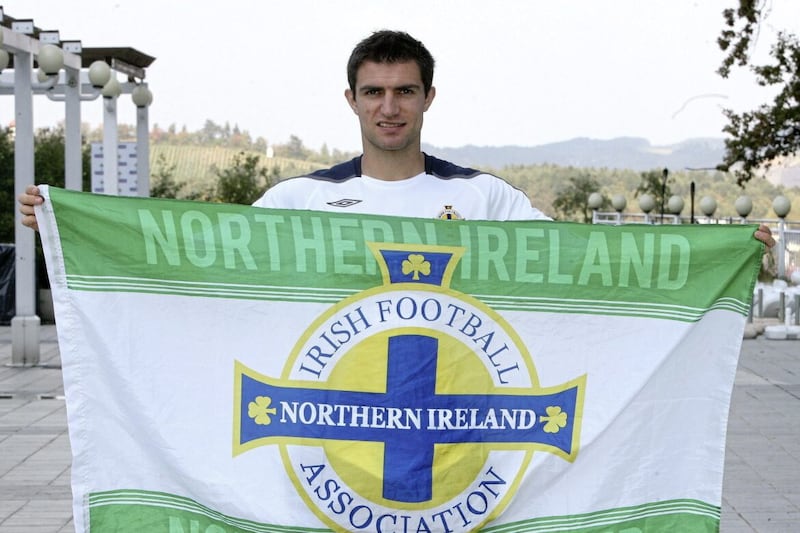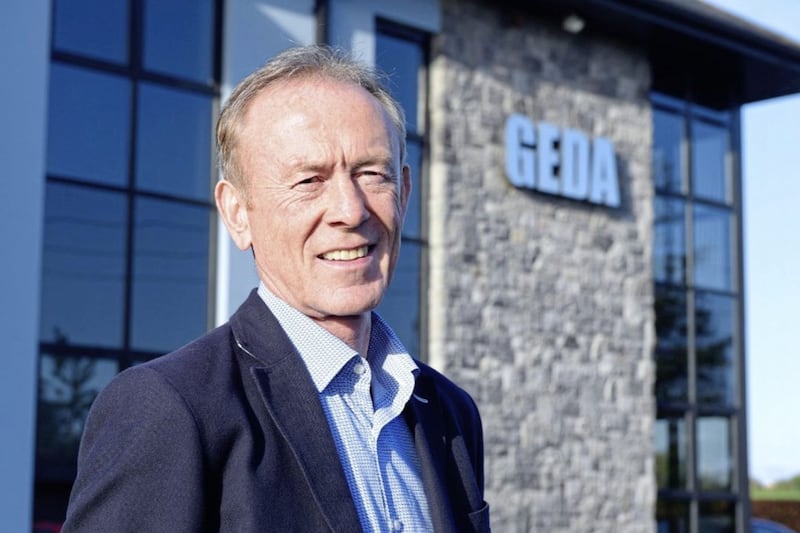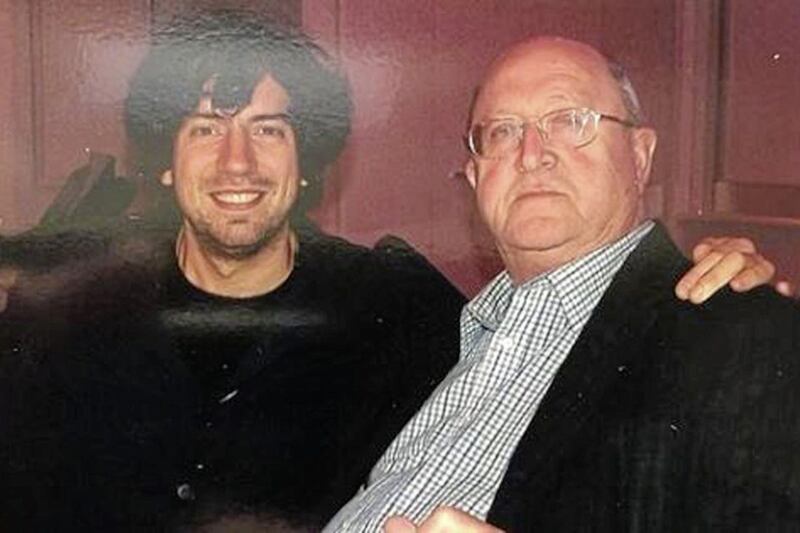TECHNICAL Director. Elite Football Development Consultant. UEFA Executive Master for International Players.
All those words and titles have been, or are, attached to the name of Aaron Hughes.
Yet the Irish Football Association's Technical Director insists that his work must start with the 'grassroots' and the clubs to build the game of soccer in Northern Ireland.
The Cookstown man was one of the heroes who reached the Euro 2016 last 16, and he also saw the inspiration provided as the NI Women's team qualified for their continental competition this summer.
However, the 43-year-old believes success is constructed from the foundations up, not from the top down.
"We're not a huge country so we have to rely heavily on our development side of the game, and make that as robust as possible. Our grassroots games is crucial, because it's where young players develop those fundamental skills early.
"When you look at other countries, some of the top nations, and at their young players, the culture that they have, how comfortable they are on the ball at such an early age, that comes from even earlier, their grassroots.
""So it's how we can help our clubs. How we can provide better help around coaching, tie coach education into it. There's all those different elements to it. It's not just what happens on the pitch, it's the support network around it."
Being small doesn't preclude major achievement, of course. Croatia, with a population of 4 million, reached the last World Cup Final and is in another semi-final tonight, against Argentina.
Belgium, albeit with close to 11m people, has punched above its weight too, having topped the Fifa World rankings and got to the previous World Cup semi-finals in Russia.
Those Red Devils remain an inspiration, despite their below-par performances in Qatar.
When Hughes completed his UEFA Executive Master for International Players, his Masters related to the concept and practice of a National Training Centre.
There's one planned for Northern Ireland, and his own research "entailed going and looking at other countries and what they were building. It all relates back to that National Training Centre and the culture that they build. Really it's just getting everyone on the same page, going in the right direction. Building philosophy and setting standards."
Indeed, in the first week after his appointment as IFA Technical Director last month, having been in that aforementioned consultant role since March of last year, Hughes went to Belgium's National Training Centre, to talk to the people behind the football renaissance there.
Long before players get to a national training centre, though, they begin with clubs, and Hughes is determined to forge partnerships with those particular 'production lines' in Northern Ireland:
"A big element, and it will be key for us, I think it's going to be a really important part for us is, how big a part our clubs play in that.
"So part of my role is building those relationships with the clubs, engaging with the clubs and trying to, hopefully, get everyone on the same page in terms of where we want to take football. Within that, everyone can still have their own identity and whatever 'success' is for them, they can still try to achieve that.
"But when we come to try and qualify for major tournaments, and how we want to try and develop young players and what we need to focus on, that's hopefully where we can get on the same page and just help make football better."
Nurturing talent is one part; retaining it is another. Every boy and girl born in Northern Ireland is entitled to opt for the Republic of Ireland, but Hughes isn't just focused on the potential attraction from the south:
"I think in the modern game now it's not just losing players to the Republic – we've got players who are eligible for Scotland, players are eligible for England, Wales, even further afield at times.
"So I think it's just important that what we offer, if you like, their 'experience' when they're in our programmes, is the best it possibly can be."
"We can show people that we can offer them a pathway to international football. And if we can do that as best as we possibly can, then at least you've offered that - the decision then lies with the player, with the family, and you can't really control that.
"But if you can influence that in terms of the experience that they've had, making sure that when they turn up to training session or to camps that it's enjoyable, they feel part of it, they feel like there is a pathway there is a future…"
In that regard, small may well be beautiful, or at least helpful: "Look at some of the young players that have made their debut recently for Northern Ireland: for a young player, maybe sitting on the fence, not too sure, there's an example that you could be playing international football at 18, 19 years of age.
"That's one of the strengths, the benefits of being a smaller country; because our pool isn't as big as some of the other countries, that the better young players, we can get onto the pitch maybe sooner than elsewhere and that might be attractive to them.
"Everything else within that experience, if we can make that as robust as possible, and as best we can, then there's not really much else we can do - it comes down to an individual decision.
"I think the focus has to be on ourselves. Just really being critical, understanding where we're strong, looking at our weaknesses and seeing where we can improve. Hopefully, then, we'd see results just from setting good standards."
With Aaron Hughes at the head, Northern Irish football is in good hands.

